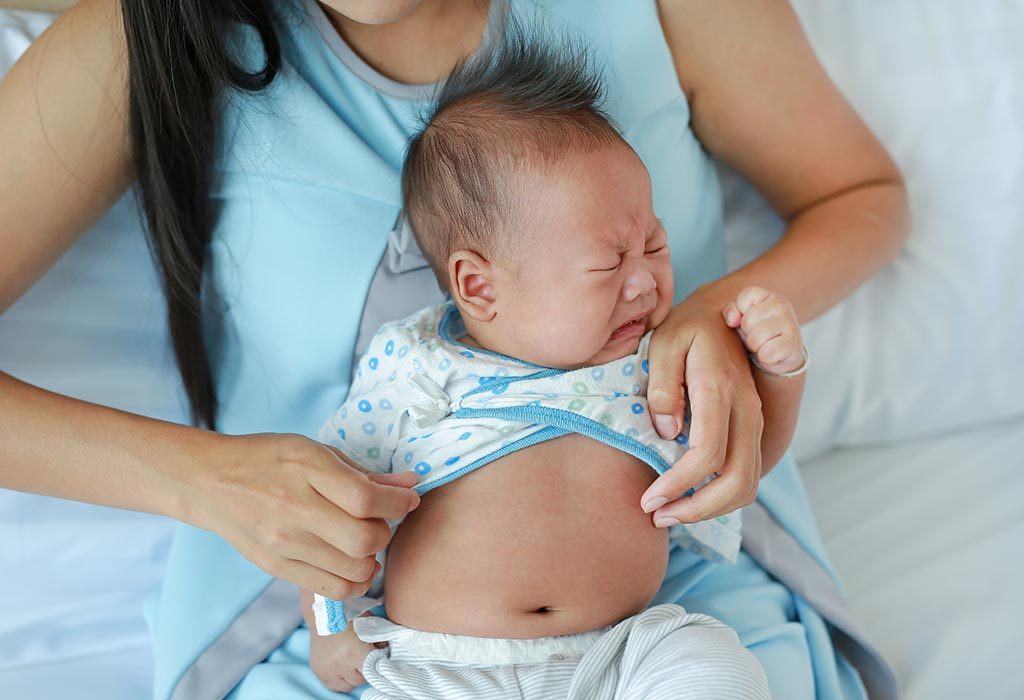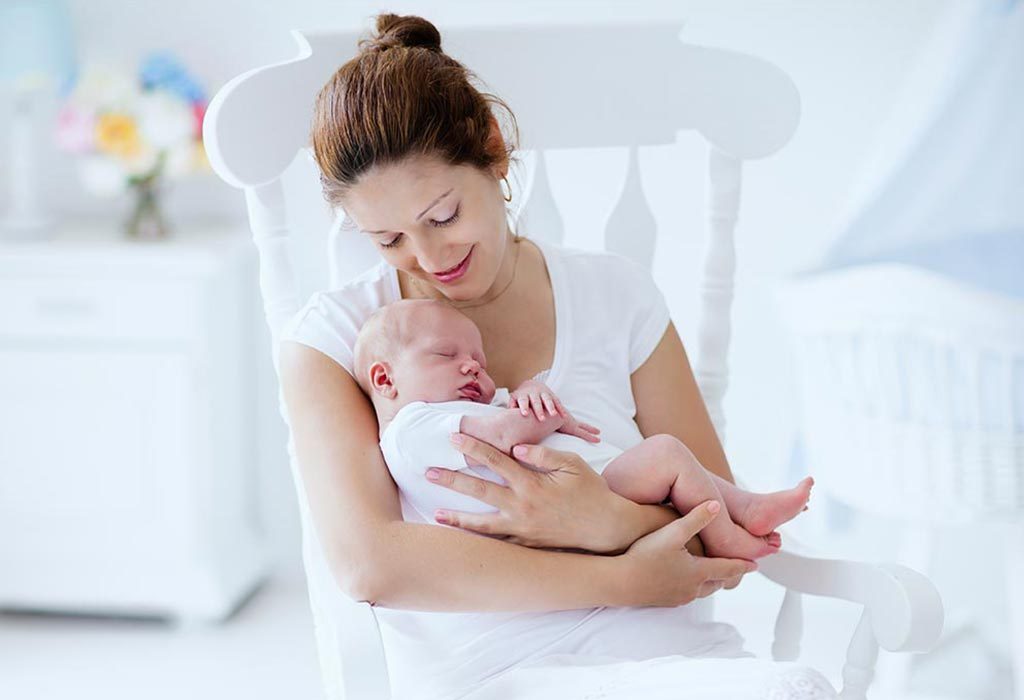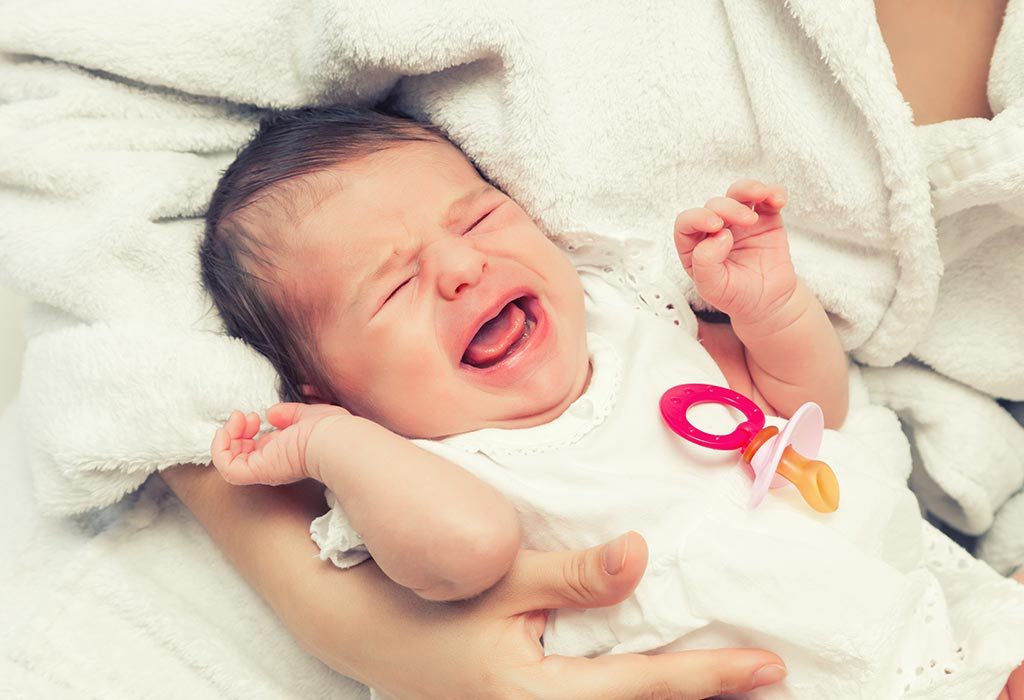In this Article
Fussy babies are not an uncommon sight if you’re living with a young toddler. Babies get cranky when they’re hungry, sleepy or just irritated due to an illness they cannot convey. However, one condition that exists which is caused due to extreme fatigue is known as overtiredness. Babies aren’t able to get any sleep because of this and this can make them very cranky. Sometimes, the baby’s tired but not sleeping, so you’ve to figure out how to help them get them to.
It is important that parents of young children know how to deal with this condition so that they’re not caught out unawares if it occurs. You could help your baby fall asleep again with a few tips and this can help bring some much-needed rest for you as well.
What is Overtiredness in an Infant?
Overtiredness is generally considered a condition that lies between exhaustion and tiredness. Due to this extra physical fatigue, babies will not be able to sleep properly or at all. The more tired they feel, the harder it becomes to put them to sleep again. Plus, since babies cannot control or express themselves, they become crankier than usual.
It can be pretty surprising to know that they can get really tired despite their lack of too many physical activities at that nascent age. It is up to you as a parent to understand that they’re feeling tired and then begin the process of putting them back to sleep.
What Causes Overtiredness in Babies?
For a baby to feel overtired, there must have been something that triggers it. Of all the causes, the most common one is sleep deprivation. A baby generally feels overtired due to a sleep deprivation but sometimes there are other reasons as well:
1. Overstimulation
Generally, overstimulation causes a baby’s nervous system to become overloaded due to extra sensory stimulation. Babies can become really overwhelmed by everything happening around them and they are generally powerless to do anything or communicate about this situation. Just like how adults need peace and quiet when they’re tired, babies too sometimes need a quieter environment just to help them relax.
Without sleep, the baby is going to feel sensitive to stimulatory triggers such as lights, loud noises, getting dressed, being patted, getting massaged and so on. Newborns are generally more vulnerable to this situation and a lack of maturity in their nervous system. Babies who are overtired due to stimulation will keep bellowing or crying despite any efforts from parents to help them get better.
2. Intestinal Discomfort
Babies who generally wake up prematurely or act fussy/cranky have their behaviour generally attributed to hunger. Babies who feel hungry are fed immediately but sometimes, the exact opposite is what they’re craving for – Lack of food so that their gastrointestinal tract can get back to full health. This condition can also be caused due to breastfeeding more, providing infant formula and increasing bottle-feeds.

Newborn babies (under 3 months) cannot regulate their intake because of their sucking reflex. Most feeding practices – especially those that involve giving the baby more milk, can cause discomfort in their stomachs, which is primarily caused due to them being lactose intolerant or overloaded.
Some useful tips include an addition of rice cereal to the baby’s bottle and/or starting them off on solid foods so that they can sleep better.
3. Underfeeding
Sometimes, babies who are chronically sleep-deprived can also struggle to gain the sufficient weight ideal for their stage. Sleep-deprived babies end up becoming very exhausted and cannot feed effectively. They could then miss out on the required nourishment to grow and therefore end up sleeping for longer hours in the night, becoming too exhausted for night food.
Sleep-deprived babies who breastfeed will not be able to do so effectively because they don’t drain the mother’s breast or stimulate the supply enough; resulting in less milk.
Signs of Tiredness in Infants
Since babies cannot express with their words, they will express with their body language and there are a few baby tired cues that you can pick up on:
- Rubbing Eyes, Hair and Ears – Babies who are overtired begin rubbing their eyes, ears and hair and these are commonly mistaken as a sign of teething
- Yawning – The most obvious sign that your baby is feeling tired. It is the best sign that they need sleep and you will need to reprioritise what you’re doing and focus on getting them asleep
- Facial Expressions – Babies who are feeling overtired generally change their expressions from happy to slightly grumpy as they gradually fall asleep
- Lack of Eye Contact – Overtired babies will avoid making eye contact and may even stare listlessly into space
- Body Stiffening – Babies can have rigid or tense legs and hands and this is a sign that they are overtired. Their fists will also be clenched.
- Latching Difficulty – Babies can also find it hard to latch on to the mother’s breast when they’re overtired. They may begin crying and can even throw food, toys or things around them to send a message.
- Lack of Interest – If babies begin losing interest in their favourite activities, toys or food, the general reason can be attributed to tiredness.
- Self-Soothing Signs – Babies are capable of making self-soothing signs to show that they’re tired. These can include the sucking of the thumb, searching for dummies etc.
- Autonomic signals – Babies start showing autonomic signals that can happen unconsciously to show that they’re tired. These can include sneezing, hiccups, sweaty palms, heavy or quick breathing and a sense of blueness around the mouth of the baby
How to Calm and get an Overtired Baby to Sleep?
Despite babies getting overtired, there are a few ways in which you can get them to calm down or soothe them.

Here are a few methods where you can overtired baby to go back to sleep:
- Rocking
- Swaddling
- Holding
- Feeding
- Dimming the lights
- Playing white noise
While this can work for infants and younger babies, there are a few methods that will work for older babies:
- Sing lullabies
- Avoid eye contact and give them some time
- Try removing the noise around them so they can soothe themselves
- Read books in a soothing voice to calm them down
How Baby Behaves if it is Constantly Tired?
There are certain behavioural attributes that babies display when they’re overtired or constantly tired. There are certain signs that help you figure out if your baby is tired.
- Sleeps less than their average number of hours for that age group and refuses to fall asleep; instead, turns hyperactive
- Wakes up to the smallest noise and has short day-naps
- Refuses to have food and falls tired during feeding time. He also feeds better at night.
- Displays more happiness and contentment in the mornings instead of afternoons. He also cries more often and has shorter attention spans
- Refuses to get on the high chair or crib and yearns to be rocked
- Shows separation anxiety levels that are extreme and also insatiable appetites
If you as parents overlook these behavioural actions, they could prove to be harmful to the overall health and development.
Tips to Prevent Tiredness in Babies?
Here are a few tips that you can follow to prevent tiredness in babies apart from watching out for the signs:
- Help them feel comfortable by dressing them in suitable clothing
- Settle them down even if you notice the first signs of sleepiness
- Cool their rooms with dim lights
- Ensure that they’re completely comfortable and not disturbed during their sleep hours
- Fix a routine bed/nap time and help them fall asleep with a warm bath
FAQs
1. Why Does an Overtired Baby Cry its Lungs Out?
Overtired babies generally wish to express their tiredness through wailing or crying out loud. They fight to fall asleep and usually cry as a means to communicate.

2. Do Hormones Play a Role To Make Babies Tired?
Hormones are the ones primarily responsible to help babies fall asleep. The main hormones that govern sleep in babies include melatonin and cortisol and their levels are constantly fluctuating throughout the day. The levels of these hormones in the body make it easier to fall asleep during certain times of the day
Cortisol keeps a person awake and peaks around 8 AM while gradually dropping through the day while melatonin helps people sleep. If you can stimulate the brain to release more melatonin, babies can sleep better.
Thus, babies are generally helpless against overtiredness as they themselves cannot understand what is happening. Parents need to be more careful and read these signs so that they do not create a cycle of irregular sleep that can hamper the baby’s growth and development.
A sleeping baby is always a sight to behold because it gives you the break you need to tend to other chores and responsibilities. Prioritise your baby’s sleep over everything else because it is his most valuable ally to develop and grow as a nourished and healthy individual.









